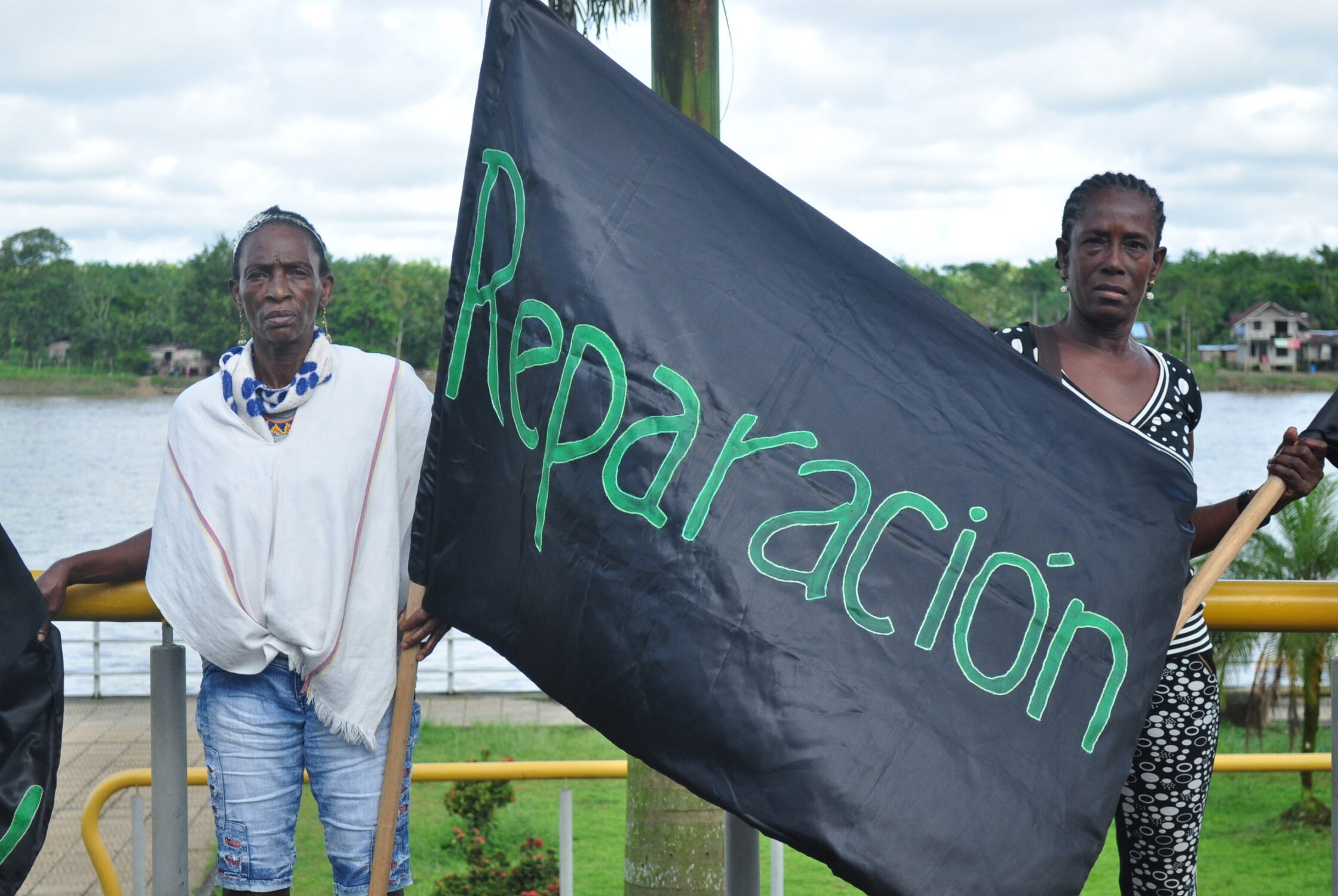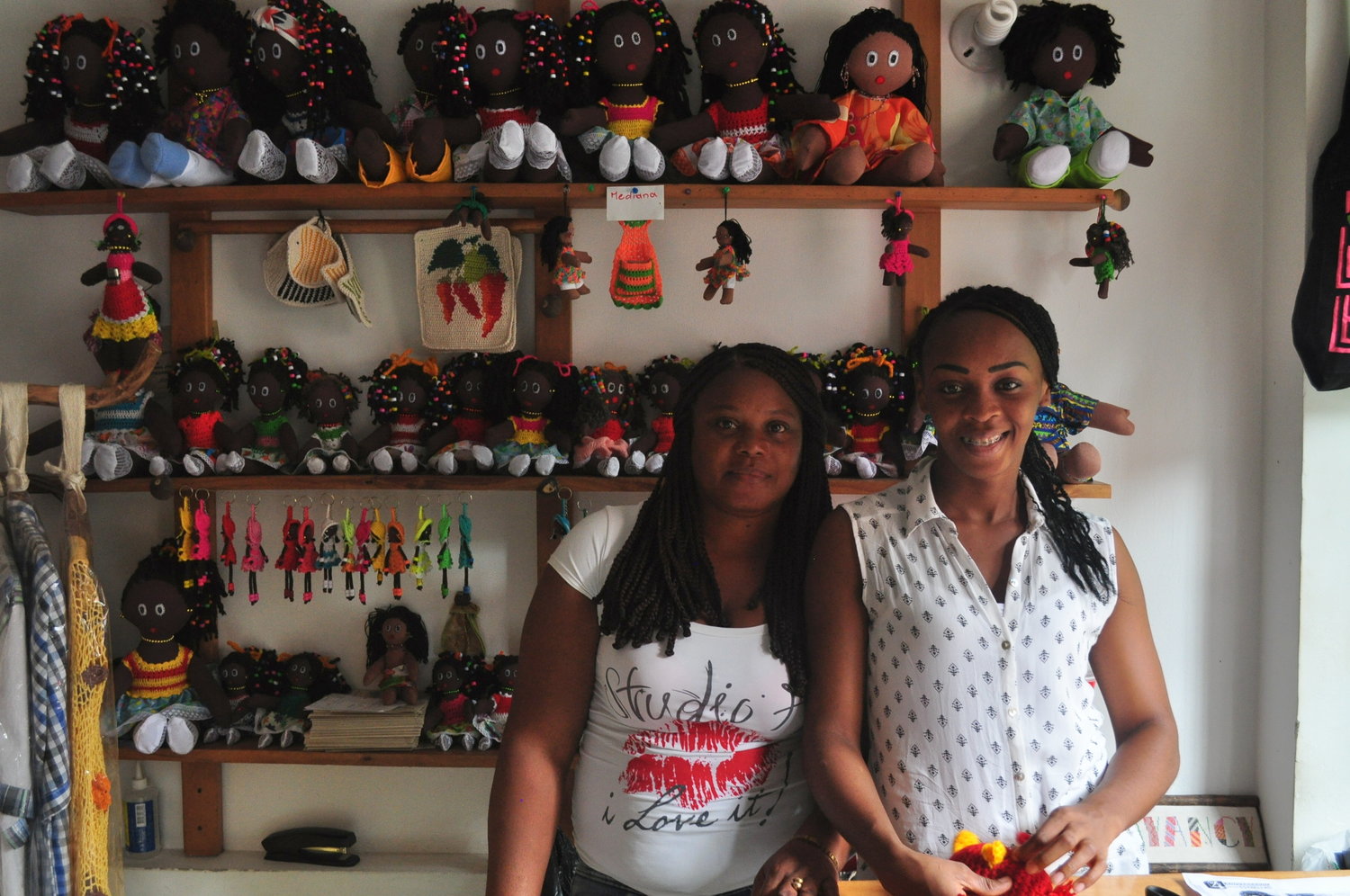A Battle Not Yet Over: Displacement and Women’s Needs in Post-Peace Agreement Colombia

After 50 years of brutal war, the peace agreement between the Government of Colombia and the Revolutionary Armed Forces of Colombia – People’s Army is cause to celebrate.
Over the last five decades of the conflict, at least 218,094 Colombians have died, 25,007 individuals have disappeared, and millions have been displaced. Women and girls have long been on the frontlines of this war – as combatant, victim, and peacemaker. What they and all conflict victims stand to gain from peace is monumental, given that entire generations have known nothing but war.
However, the challenges to a sustainable peace in Colombia cannot be underestimated as ongoing conflict and violence continue to threaten this population. The disarming of guerillas and the implementation of the peace agreement will not take place in a vacuum. Across the country, the war tore communities apart. Now, those same communities face the difficult and delicate process of implementing the peace plan, while other armed groups remain active. As this process unfolds, the humanitarian community must continue to assist the most vulnerable Colombians, helping to secure what is likely to be a fragile peace.
Help simply doesn’t come. Where is the integral help they promise – the aid, the psychological assistance, the means with which to help our orphaned children?
Displaced woman, Department of Putumayo

In the days since the signing of the final peace agreement, there has been a dramatic increase in threats and violence directed toward human rights defenders in Colombia, many of whom are women.
International donors who shift assistance exclusively toward peace process implementation fail to acknowledge the many challenges that will likely emerge in the early stages of the peace agreement implementation.
Background
For more than half a century, the Government of Colombia has been in active armed conflict with the Revolutionary Armed Forces of Colombia – People’s Army (FARC). As a result of the armed conflict, millions of Colombians have been displaced from their homes. Since the government created the registry of displaced persons in 1997, over seven million internally displaced persons (IDPs) have been registered.
Over the decades, the conflict has disproportionately affected Colombian women, who continue to bear the brunt of ongoing violence. Thousands of women and girls have been subject to sexual violence, including rape, sexual slavery, forced abortions, and sexual exploitation. Between 2000 and 2009 alone, 12,809 women suffered conflict-related rape, 1,575 women were forced into prostitution, 4,415 women had forced pregnancies, and 1,810 had forced abortions. Young girls, ages ten to fourteen, are the group most affected by sexual violence. The rate of sexual violence within this age group is five times higher than for Colombian women in general, and eight times higher than the rate of violence for the population as a whole.
Recommendations
Donor governments should:
- Direct headquarters-level staff to consult more closely with their peers in the Humanitarian Country Team and the International Humanitarian Donor Working Group in Colombia to better understand evolving protection risks and humanitarian needs;
- Complement their contributions to the peace agreement implementation plan with humanitarian assistance for the country’s conflict-affected zones, in particular for areas where governmental agencies responsible for assisting victims of the armed conflict do not have a presence;
- Work with the Government of Colombia to undertake a comprehensive review of the Unit for Assistance and Integral Reparation to Victims’ (UARIV) organizational management and operational efficacy, with a view to informing how to best address the institution’s challenges through its future investments; and
- Fund programs, alongside the U.S. Department of State’s Bureau of Population, Refugees, and Migration (PRM), that provide counsel and orientation to victims on how to access UARIV’s registry and humanitarian assistance to which they are legally entitled.
- International humanitarian agencies must maintain financial support and resources for their country and field offices in Colombia through at least 2018, as the country weathers the critical post-agreement phase.
- The Humanitarian Country Team must prioritize protection and gender equality interventions during the development of the 2017 Humanitarian Needs Overview and Humanitarian Response Plan.
The Gender-Based Violence (GBV) sub-cluster, led by the United Nations Population Fund (UNFPA) and the United Nations Entity for Gender Equality and the Empowerment of Women (UN Women) should:
- Immediately develop a mapping of all international and civil society actors capable of providing services, with a particular focus on areas hosting FARC concentration zones;
- Formally open membership for local civil society groups to fully participate in the sub-cluster;
- Develop and/or revise GBV referral mechanisms and protocols – for areas where there are no services available – in line with government protocols;
- Work with the United Nations Mission in Colombia (UNMC) to build an information-sharing mechanism to report cases of GBV and sexual exploitation and abuse; and
- Provide technical assistance to UNMC to prevent and respond to GBV cases.
- UNFPA and UN Women must dedicate resources toward a full-time coordinator and the expansion of the GBV sub-cluster operational presence to the field.
The United Nations Mission in Colombia must:
- Work with the Colombian President’s Office of the High Commissioner for Peace to ensure that, through its civilian liaison officers, free, full and accurate information is shared with the communities hosting FARC concentration zones on a continuous basis;
- Recruit and empower an expert in the protection of civilians; and
- Direct its civilian liaison officers to cooperate with local GBV service providers and participate in the government’s local GBV referral networks, where functional, in order to ensure proper care for survivors in their areas of responsibility.
Senior Advocate for Women and Girls Francisca Vigaud-Walsh and Press and Information Officer Alyssa Eisenstein traveled to Colombia in August and September 2016 to assess displaced women’s perceptions of the challenges in the wake of the peace agreement with FARC.
Research Assistants María Adelaida Vélez and Gabriela M. Dehesa-Azuara contributed to this report.